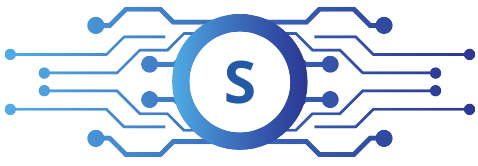
In 2017, I transitioned to a larger company, embarking on a new chapter of my career as a software engineer. This change brought along exciting opportunities to work on more complex and challenging projects. Amidst this professional growth, I delved into the realm of open-source technologies, which had a profound impact on my skill development and community involvement.
One of the standout open-source technologies that shaped the tech landscape till 2017 was the Linux operating system. Linux, with its open-source nature, not only offered a robust and reliable platform but also served as a testament to the power of collaborative development. As I delved deeper into Linux, I became increasingly familiar with its architecture, customization options, and command-line interface. This exposure enhanced my understanding of operating systems and laid a strong foundation for my career in software engineering.
Additionally, the rise of the Git version control system transformed the way developers managed and collaborated on code repositories. Git’s distributed nature and powerful branching capabilities revolutionized the software development workflow, enabling seamless collaboration, versioning, and code management. Embracing Git allowed me to work more effectively with teams, track changes, and contribute to projects in a structured manner.
Furthermore, during this period, I had the opportunity to explore and contribute to open source projects. Engaging with the open source community exposed me to a vast array of technologies and allowed me to learn from seasoned developers. Contributing to projects such as Apache Kafka and TensorFlow provided me with invaluable insights into large-scale software development, code reviews, and working collaboratively with diverse teams. These experiences not only expanded my technical knowledge but also fostered a sense of community and the importance of giving back to the software development ecosystem.
In the world of web development, the JavaScript ecosystem saw tremendous growth, with several open source technologies making their mark. Libraries and frameworks like React.js and AngularJS continued to gain popularity for building dynamic and interactive user interfaces. Working with these open source technologies challenged me to think in terms of component-based architectures and enhanced my ability to develop scalable and performant web applications.
Open source databases like PostgreSQL and MongoDB also played a significant role in shaping the data management landscape. PostgreSQL, renowned for its reliability and extensibility, provided a robust foundation for storing and managing data, while MongoDB, a NoSQL database, offered flexibility and scalability for handling large volumes of unstructured data. Working with these open source databases exposed me to different data management paradigms and deepened my understanding of database systems.
As I reflect on my journey, the adoption of open source technologies was instrumental in my growth as a software engineer. Embracing Linux, Git, and contributing to open source projects broadened my horizons, honed my technical skills, and instilled a sense of collaboration and community-driven development. These experiences not only enriched my professional development but also reinforced the significance of open source technology in driving innovation and fostering a culture of knowledge sharing within the software engineering community.
Looking back at the top open source technologies till 2017, I am grateful for the opportunities they provided and the knowledge I gained through exploration, contribution, and collaboration. These technologies continue to shape the software industry, serving as pillars of innovation and collaboration for developers worldwide.



